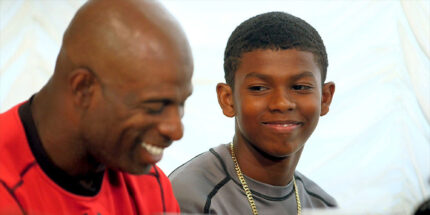With police brutality being scrutinized globally, the entire system of law enforcement has been called into question.
The death of Rayshard Brooks at an Atlanta Wendy’s came during a time when the world was already on fire from the deaths of George Floyd, Breonna Taylor, and Ahmaud Arbery.
With death by police coming back-to-back-to-back, public opinion can shift like the wind with every news report. Oftentimes, these victims are looked at as potential criminals or suspects, when in fact they are just people trying to figure life out.
Brooks, 27, died after Atlanta Police responded to a call about a car at a Wendy’s drive-thru that was not moving. According to bodycam footage, when police arrived at the scene, they found Brooks sleeping in his car, which had forced other customers in line to drive around it.
SAY THE NAMES OF THE MURDERERS so you are not complicit in protecting them:
Garret Rolfe murdered Rayshard Brooks.
Myles Cosgroves, Brett Hankinson and Jon Mattingly murdered Breonna Taylor.
Derek Chauvin murdered George Floyd.
— Ericka Hart (She/ They) (@iHartEricka) June 18, 2020
Police questioned Brooks and administered a field sobriety test. Once they tried to handcuff him, Brooks resisted and wrestled a taser from one of the two officers on the scene and fled. As he ran, with the taser flailing behind him and according to an eye witness, “pointed in the air,” former Atlanta officer Garrett Rolfe drew his gun and fired three shots, two of which hit Brooks in the back. He was taken to a hospital and died after surgery.
Meet Rayshard Brooks
Months before Rayshard Brooks was shot by a police officer outside of a Wendy’s in Atlanta, he granted an interview where he spoke about his struggles with life after incarceration. Brooks told the Reconnect interviewer that he was arrested for false imprisonment and financial credit card fraud, pleaded guilty and was sentenced to one year in prison. Far from a hardened criminal, Brooks also had optimism about life.
In February, a company called Reconnect posted an ad on Craigslist. Reconnect works to fight the incarceration crisis in the U.S., and they were looking for someone on probation or parole who was willing to be interviewed on camera.
The killing of #RayshardBrooks teaches us, again, that there is no technological fix for a cultural problem. These cops had body camera, there were witnesses, Wendy’s had surveillance cameras. And they STILL shot him in the back, stood on his shoulders & kicked his dying body.
— Charles M. Blow (@CharlesMBlow) June 18, 2020
Reconnect sent a representative to Atlanta to meet with Brooks, and he detailed his life after incarceration and the difficulty of finding employment.
“If you do some things that’s wrong, you pay your debts to society. That’s the bottom line. I just feel like some of the system could look at us like individuals. We do have lives. It’s just a mistake we made, not just go at us as if we are animals.”
Nothing has changed in 30 years. #RayshardBrooks pic.twitter.com/R7NwqdtHB3
— Brandon Farmahini (@MrFarmahini) June 18, 2020
“It’s also messing with our mental state, by us being incarcerated. Just not being able to see the outside, not being able to go. Being woken up, being told what to do, when and how.
“Some people are considering suicide. A lot of things that they don’t know. It’s a lot of pressure for oneself to be able to feather up the energy to deal with. It’s just a lot. It’s just a lot. And some people are not able.”
Brooks revealed that he oftentimes would get frustrated with the process but his hope for a better life never waned.
No way Wendy's encounter should've ended w #RayshardBrooks dead. I advocate for cops, but you can't overlook unnecessary escalation of epic 43 minute encounter that in a bygone era could've ended with drunk taking cab or Uber home. Black men face special challenges dealing w cops
— Geraldo Rivera (@GeraldoRivera) June 18, 2020
That is the saddest part about his death by police. They never knew he was a man surviving generations of trauma and recent personal trauma. How could they know? All they saw was his record and his Black face and all human sensibilities were thrown out the window.
Brooks’ traumatizing stint in prison made him so fearful of returning that he tried to run from the police. It’s an almost unwinnable situation, especially when they are willing to shoot you in the back for sleeping off intoxication in a Wendy’s parking lot.
“It’s just a lot of things that have caused me to be behind,” Brooks said. “But here, yet, I’m trying. I’m not the type of person to give up. I’mma keep going until I make it to where I want to be.”
Rayshard Brooks never gave up on life. However, America, with its predatorial criminal justice system, systemic racism and institutional noose, gave up on him a long time ago.
Rest in Power.



